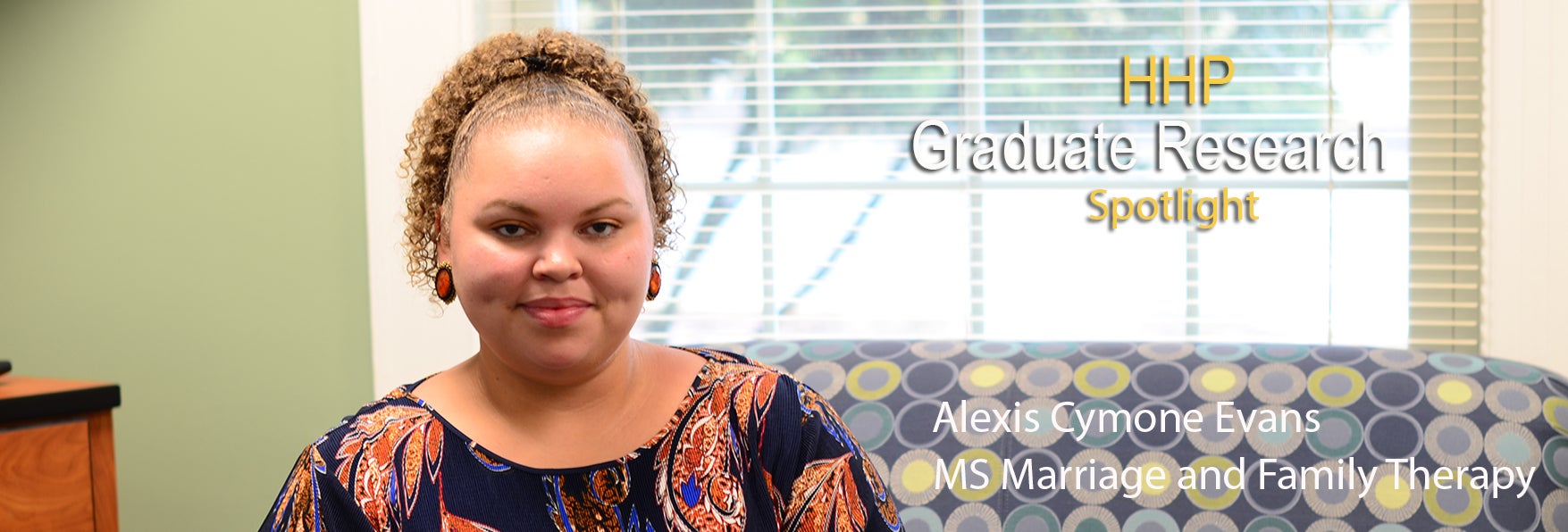HHP Graduate Research Spotlight - Alexis Evans
Name: Alexis Cymone Evans
Major: Marriage and Family Therapy
Faculty Mentor: Dr. Erin Roberts
Describe your current research project.
My current work is focused in gaining additional training in providing trauma-informed care for couples, families, and individuals. As a part of our research, we have formulated and launched a support group for co-victims of homicide in Eastern North Carolina. As the facilitator of this group, my research has been focused on the experiences of co-victims of homicide, aspects of support groups that are effective in working with this population, and outcomes of the support group that has been started in Greenville.
Why did you choose this particular topic?
I chose this topic due to my personal connection to this population as someone who also identifies as a co-victim of homicide. In being witness to my own family’s struggles after the loss of a family member to homicide, I gained a passion for supporting families through that process of combined trauma and grief, deciding to incorporate that interest in working with this population into my education and training.
What outcomes or impact do you hope your research will accomplish?
I hope that my research will serve to provide more focused support for an often overlooked and misunderstood population of trauma survivors. My hope is that my research will bring light to the unique experiences of this population and effective ways to implement grief and trauma work into practice for traditional therapy and support groups.
Do you feel that participating in such research will impact your job placement after graduation? If so, how?
It is my hope that receiving additional training in providing trauma-informed care to clients will result in increased job opportunities post-graduation. Often, entry level work for mental health professionals involves work with survivors of trauma. Such heavy, mentally laboring work can sometimes result in burnout for beginning therapists, leading away from work with these populations. I hope that this research and training opportunity will provide me with more tools for working with high-risk populations and dealing with the mental labor that accompanies such work so that I’m able to serve this population as a truly present, competent therapist.
What has been your favorite part of your research?
My favorite part of this research has been the opportunity to collaborate with so many partners in the community, and to serve a population that has such high need but is often forgotten. In partnering with the North Carolina Victim Assistance Network on the launch of this support group, I have been presented with more training and networking opportunities. I have also been fortunate to collaborate with other community partners in the Greenville area that have provided me with increased support during my final year of graduate school, community-based discussion, and intervention tools for the populations I am working with. Being able to provide education on the needs of co-victims of homicide, and to fulfill some of those needs through the support group has by far been the most satisfying part of this opportunity.
